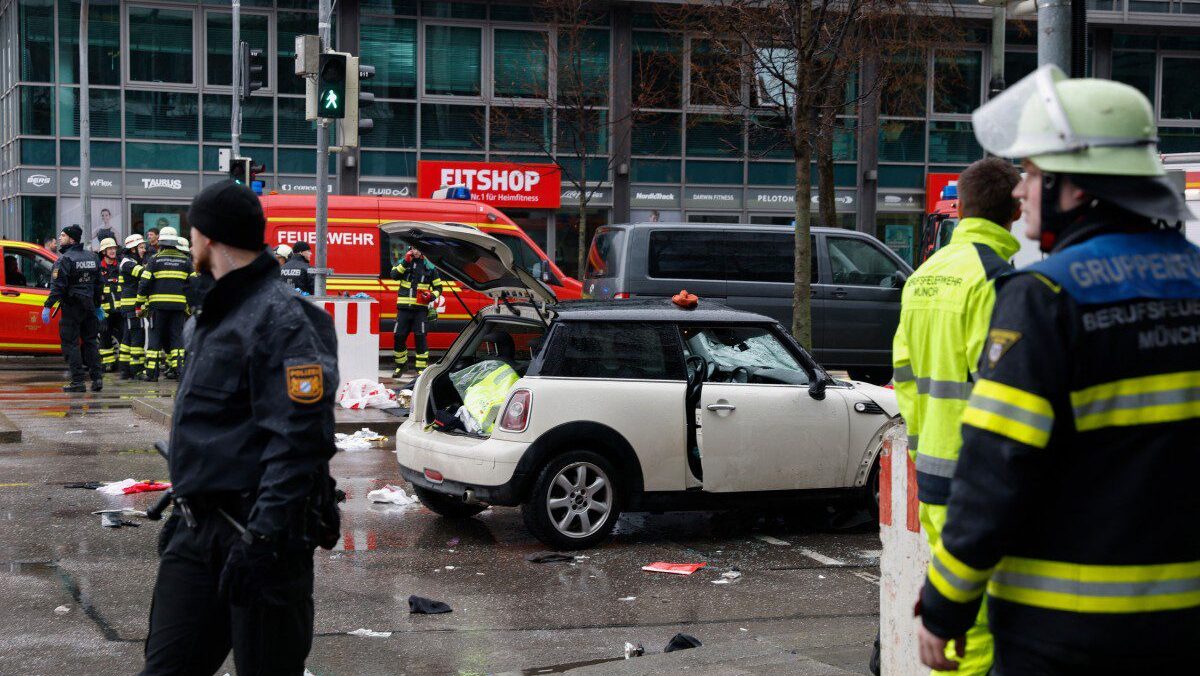
Members of the emergency services work at the scene where a car drove into a crowd in Munich on February 13, 2025
Michaela Stache / AFP
The driver of the car that rammed a crowd in Munich on Thursday, February 13th, injuring 28 people, was a failed asylum seeker, according to German media reports.
Identified as Farhad N., the 24-year-old man was born in the capital of Afghanistan, Kabul, and came to Germany at the end of 2016, but his asylum application was later rejected.
He was then granted a so-called “tolerance” permit, which means his deportation decision was suspended.
Though his asylum application was rejected, it was determined “that he cannot be deported,” and “was therefore allowed to continue to stay in our country,” Bavaria’s Interior Minister Joachim Herrmann said.
Farhad N. is said to have posted Islamist content online before committing this alleged heinous crime. Police added that there were “indications of an extremist background.”
A prosecution department which investigates extremism and terrorism has now taken over the probe into the attack.
The incident once again highlights the authorities’ inability to deal with asylum seekers that have had their applications rejected.
The most serious attacks in recent months were all carried out by migrants who should have been deported long ago.
Syrian Issa al Hasan, the perpetrator of the Solingen terrorist attack last August, which claimed the lives of three people, not only was not deported, but continued receiving social benefits.
Afghan Enamullah O., the man alleged to have murdered a two-year-old toddler and a 41-year-old man in the Bavarian city of Aschaffenburg three weeks ago, was supposed to have been deported in December, but because he failed to show up at the immigration office, he was simply forgotten about.
Another Afghan, Sulaiman Ataeem, had been living in Germany illegally for nine years when he killed a policeman.
Friedrich Merz, the leader of the opposition centre-right CDU party, recently said that Germany still accepts as many immigrants in four days as are deported in a month.
In a social media post after the attack he said “something has to change in Germany,” and his party would “consistently enforce law and order.”
Furchtbare Nachrichten aus #München.
— Friedrich Merz (@_FriedrichMerz) February 13, 2025
Meine Gedanken sind bei den Opfern und ihren Familien. Ich hoffe, dass sie diese schwere Zeit überstehen und die nötige Kraft finden. Mein Dank gilt den Sicherheitskräften, die vor Ort Hilfe leisten. Die Sicherheit der Menschen in Deutschland…
The CDU, together with its sister party, the Bavarian CSU, is leading the opinion polls with support of 30-31%, with just over a week to go before the national elections on February 23rd. In second place is the anti-immigration AfD party, polling at 20-21%.
Migration and crime have been the two hottest topics in the election campaign, and both leading parties have vowed to turn back illegal and undocumented migrants at the border, even if it means going against European Union and international asylum laws.However, as the CDU/CSU alliance has promised not to cooperate with the “far-right” Alternative für Deutschland (AfD), it will have to form a coalition with one of the two current ruling left-wing parties, the Social Democrats, or the Greens—both of whom espouse a pro-migration agenda.
